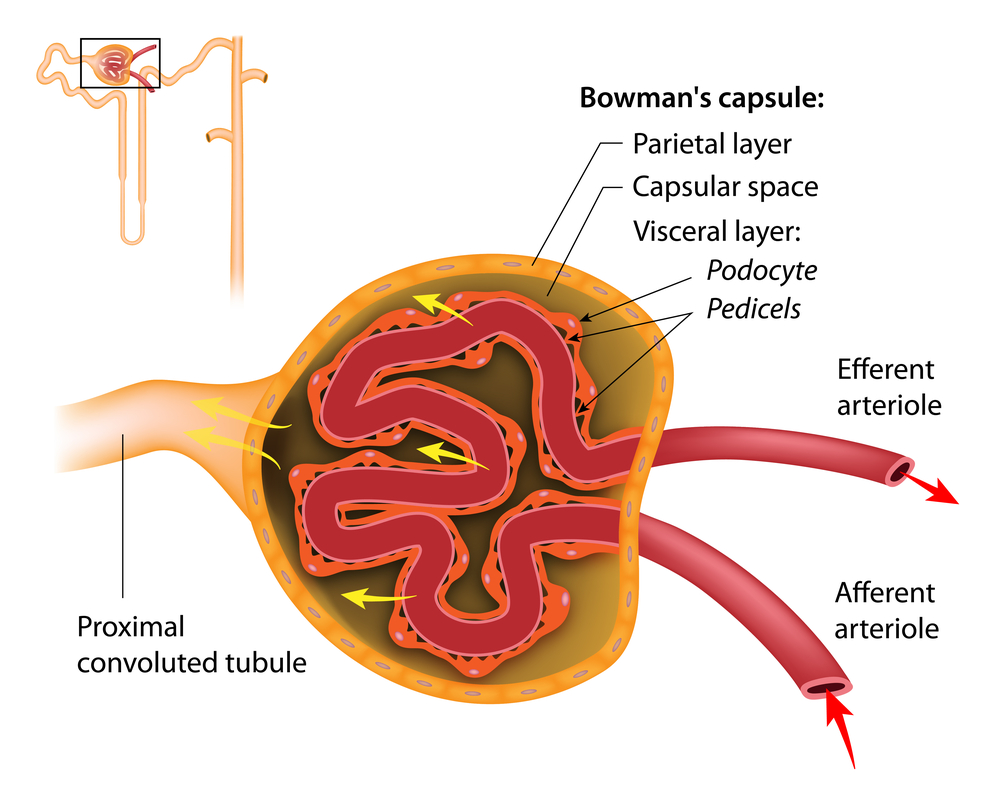Loss of Specialized Kidney Cells Accelerated in Alport Patients, Study Shows

Alport syndrome (AS) patients lose specialized kidney cells, called podocytes, 11 times faster than healthy people, according to a new study. The phenomenon seems to underlie disease progression and can potentially be used as a marker for disease progression and response to treatment.
The study, “Accelerated podocyte detachment and progressive podocyte loss from glomeruli with age in Alport Syndrome,” was published in the journal Kidney International.
Podocytes are specialized cells located in renal glomerulus (the filtering unit of the kidney) and are a crucial component of the kidney’s filtration system. The loss of such cells has been proposed as the underlying mechanism of several kidney disorders. Previous studies reported that an increased rate of podocyte loss by their detachment into urine, and a reduction in their numbers, was present in patients with Alport syndrome (AS).
These results prompted researchers to hypothesize that “accelerated podocyte detachment and depletion could be an unrecognized mechanism driving kidney failure in AS.” This would mean that podocyte loss beginning at birth would then progress and, as patients age, the amount of these cells would be reduced. Importantly, if confirmed as a process preceding and contributing to Alport progression, patients could be monitored and treated with the appropriate therapy.
To test this hypothesis, authors analyzed a group of 95 Alport syndrome patients. They measured the podocyte detachment rate in patients’ urine and found a significant increase, by 11 times, when compared to healthy people, or controls. And, the increase within AS patients was evident before any signs of proteinuria (the presence of excess proteins in the urine), one of the events that characterizes Alport progression.
Researchers then investigated whether they could detect age-related decreases in podocyte numbers in patients’ renal biopsies. In total, they analyzed 41 biopsies which showed that, in fact, podocyte numbers per glomerulus decreased in relation to age, and that the rate of reduction was 11 times faster in AS patients than in controls: Alport patients lost on average 26 podocytes per glomerulus per year, while this number was only 2.3 podocytes per year in controls.
“Although AS patients were projected to start with a normal podocyte number per glomerulus at birth, by losing an average 26 podocytes per glomerulus per year they were projected to reach end-stage kidney disease (ESKD) by about 22 years of age corresponding to the reported average age at ESKD in AS of 23 to 25 years,” researchers wrote.
Overall, these findings support that podocyte loss in Alport patients increases from birth and promotes disease progression. Monitoring podocytes could potentially help predict ESKD and patients’ response to treatment.







Zvonimir Kodba
Does the determination of podocytes require special preparation of sample ?